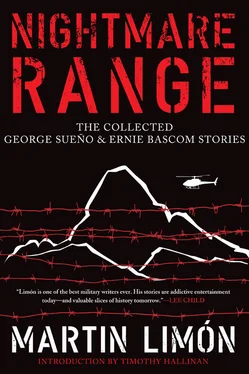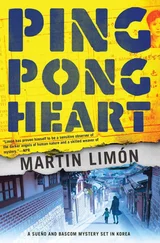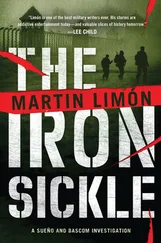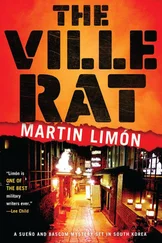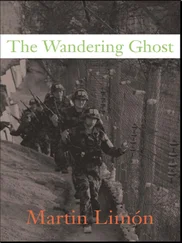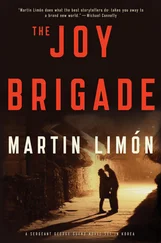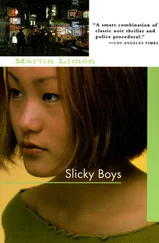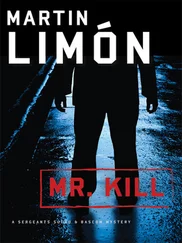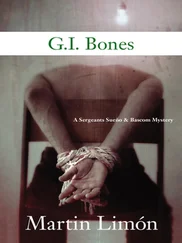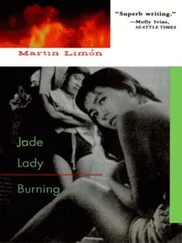Martin Limón - Nightmare Range
Здесь есть возможность читать онлайн «Martin Limón - Nightmare Range» весь текст электронной книги совершенно бесплатно (целиком полную версию без сокращений). В некоторых случаях можно слушать аудио, скачать через торрент в формате fb2 и присутствует краткое содержание. Год выпуска: 2013, ISBN: 2013, Издательство: Soho Crime, Жанр: Полицейский детектив, на английском языке. Описание произведения, (предисловие) а так же отзывы посетителей доступны на портале библиотеки ЛибКат.
- Название:Nightmare Range
- Автор:
- Издательство:Soho Crime
- Жанр:
- Год:2013
- ISBN:9781616953324
- Рейтинг книги:4 / 5. Голосов: 1
-
Избранное:Добавить в избранное
- Отзывы:
-
Ваша оценка:
- 80
- 1
- 2
- 3
- 4
- 5
Nightmare Range: краткое содержание, описание и аннотация
Предлагаем к чтению аннотацию, описание, краткое содержание или предисловие (зависит от того, что написал сам автор книги «Nightmare Range»). Если вы не нашли необходимую информацию о книге — напишите в комментариях, мы постараемся отыскать её.
Nightmare Range — читать онлайн бесплатно полную книгу (весь текст) целиком
Ниже представлен текст книги, разбитый по страницам. Система сохранения места последней прочитанной страницы, позволяет с удобством читать онлайн бесплатно книгу «Nightmare Range», без необходимости каждый раз заново искать на чём Вы остановились. Поставьте закладку, и сможете в любой момент перейти на страницу, на которой закончили чтение.
Интервал:
Закладка:
“A kampei ,” I said to her. A gangster.
She shook her head vehemently. “No. Not that big. He small. How you say?” The overly made up young woman thought for a moment and then came up with the appropriate phrase. “He small potatoes.”
In addition to buying her a drink, I slipped her a thousand won note-about two bucks. The tattered bill disappeared into the frayed waistband of her skirt.
When Ernie and I entered the King’s Pavilion Pool Hall, all eyes gazed at us.
There was no way for two Miguks to enter the second-story establishment surreptitiously. It was a large open room filled with cigarette smoke and stuffed with green felt pool tables from one end to the other. Narrow-waisted Korean men held pool cues and leaned over tables and lounged against walls, all of them puffing away furiously on cheap Korean cigarettes and all of them glaring at us, eyes narrow, lips curled into snarls, hatred filling the air even more thickly than the cloud of pungent tobacco smoke. This pool hall wasn’t for GIs. It was for Koreans. The GIs had their bars, plenty of them, about two blocks away from here in the foreigner’s bar district. Nobody, even the man who collected money at the entranceway, wanted us here.
Ernie snarled back. “Screw you too,” he whispered.
“Steady,” I replied.
In Korean, I spoke to the bald-headed man collecting the fees. “Mr. Shin?” I asked. “ Odiso ?” Where is he?
The man looked blankly at me. Then he turned to the men in the pool hall. From somewhere toward the back, a radio hissed and a Korean female singer warbled a rueful note. I said it again, louder this time, “Mr. Shin.”
The snarls turned to grimaces of disdain. Korean cuss words floated our way. A few men laughed. More of them turned away from us, lifting their cues, returning their attention to eight balls and rebound angles and pockets. Nobody came forward. Nobody would tell us who Mr. Shin was or, more importantly, where to find him.
Ernie and I turned and walked back down the stairway. At the next pool hall, we repeated the same procedure. With the same result.
Later that night, we stood at the spot where Miss O had been murdered.
The site was located atop a hill overlooking both Paldang-ni and Camp Colbern. On the opposite side of the hill, to the north, moonlight shone down on the sinuous flow of the Namhan River. One or two boats drifted in the distance, fishermen on their way home to straw-thatched huts. On the peak of the hill stood a tile-roofed shrine with a stone foundation and an enormous brass bell hanging from sturdy rafters. No one was there now but I imagined that periodically Buddhist monks walked up the well-worn path to sound the ancient-looking bell.
“When did they find her?” Ernie asked.
I pulled out a penlight to read my tattered notebook.
“Zero five hundred this morning,” I said. “Just before dawn. Two Buddhist monks who came up here to say their morning prayers. She was laying right here.”
I pointed at the far edge of the stone foundation, nearest the river.
“Stabbed in the back once,” I continued. “And then four or five times in the chest. She bled to death.”
“And the murder weapon?”
“Never found. The KNPs assume it was a bayonet for two reasons, the size and depth of the entry wounds and the fact that Rothenberg, being a GI, would’ve had access to one.”
“His bayonet was found in his field gear.”
“He could’ve stolen another one. Happens all the time.”
“Or,” Ernie replied, “the killer could’ve bought one on the black market.”
I nodded. Ernie was right. The KNPs were taking a big leap in locking up Rothenberg. So far, they had no hard evidence linking him to the murder. Still, public opinion had to be mollified. When a young Korean woman is murdered, someone has to be locked up, and fast. Otherwise, the public will wonder why they’re spending their hard-earned tax dollars on police salaries. Someone has to pay for the crime. Like the yin and the yang symbols on the national flag, harmony in the universe must be restored. Someone is murdered, someone must pay for that murder. Everett P. Rothenberg wouldn’t be the first American GI convicted in Korea of something that there was no definitive proof he’d actually done. But if that was the case, harmony would come to his defense. If there was little or no evidence proving that he did it, Rothenberg would receive a light sentence, maybe four years in a Korean jail and then deportation back to the States. So far, no one-including me and Ernie-had any real idea who’d murdered Miss O Sung-hee.
Rothenberg’s alibi was sketchy. After finishing the day shift at the 304th Signal Battalion Comm Center, he’d eaten chow, showered, changed clothes and headed to the ville. At about eighteen hundred hours, he’d arrived at the Full Moon Teahouse. There, he’d sat in a corner sipping on ginseng tea while Miss Kang and Miss O Sung-hee worked. Miss Kang did most of the actual serving and preparation. Miss O sat with customers-Korean businessmen, small groups of American officers-adding beauty and charm to their evening. Before the midnight curfew, according to Rothenberg, Miss O convinced him that she was too tired to see him that evening and he should return to Camp Colbern. He did. Since he returned to his base camp before the midnight-to-four curfew, the MPs at the main gate didn’t bother to log in his name. Lights were already out in the barracks. In the dark, he’d undressed, stuffed his clothes and wallet in his wall locker, and hopped into his bunk. None of the other GIs in the barracks had any recollection of his arrival.
Ernie walked over to the bell and rapped it with his knuckles. A low moan reverberated from the sculpted bronze, like the whispered sigh of a giant. We started back down the trail. It was steep. Boulders and thick brambles of bushes blocked our way on either side. We stepped carefully, inching forward, watching our step in the bright moonlight.
“Why’d we bother coming up here?” Ernie asked.
As he spoke, the earth shook-just slightly, as if something heavy had thudded to the ground. I looked back. I could see nothing except Ernie staring at me quizzically, wondering why I had stopped. Then two more thuds, one after the other, shallower this time, as if something were skipping forward, becoming louder, rolling toward us.
It emerged from the darkness above Ernie’s head, looking for all the world like a steam roller from hell.
“Watch out!” I shouted.
I leapt to the side of the trail and Ernie, not yet fully understanding, followed suit. He dove into a thicket of branches and I landed atop a small boulder and scrambled over it to the opposite side away from the trail.
The noise grew deafening, one crash after another, and then an enormous metal cylinder flew out of the night, rolling down the trail, careening to the right and then left; barreling down the trail and smashing everything in its path. It clipped the edge of the thicket and missed Ernie by a couple of feet. I crouched. The huge metal rolling pin crashed against the boulder and the cylinder flew over, only inches above my head. After it passed, Ernie and I sat up, staring at moonlight glistening off the cylinder. The careening monolith continued its pell-mell rush down the side of the hill, smashing an old wooden fence outside a small animal shelter and then hitting the shelter itself. Lumber flew everywhere. The cylinder kept rolling until it slowed and finally landed in a muddy rice paddy with a huge, sloppy splat.
“What the hell was that?” Ernie asked.
I rose slowly to my feet, checking uphill to make sure nothing more was coming at us. “The bell,” I said.
“The what?”
“The bronze bell. Come on.”
Читать дальшеИнтервал:
Закладка:
Похожие книги на «Nightmare Range»
Представляем Вашему вниманию похожие книги на «Nightmare Range» списком для выбора. Мы отобрали схожую по названию и смыслу литературу в надежде предоставить читателям больше вариантов отыскать новые, интересные, ещё непрочитанные произведения.
Обсуждение, отзывы о книге «Nightmare Range» и просто собственные мнения читателей. Оставьте ваши комментарии, напишите, что Вы думаете о произведении, его смысле или главных героях. Укажите что конкретно понравилось, а что нет, и почему Вы так считаете.
